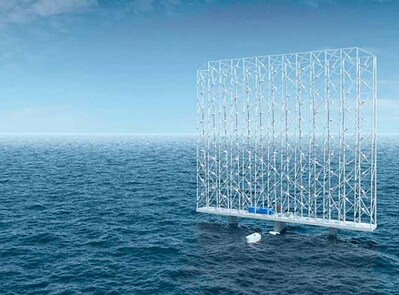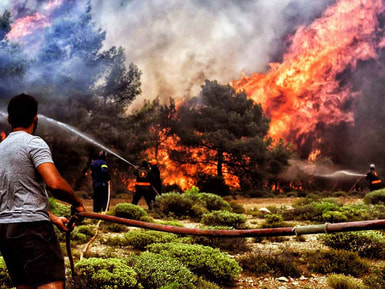 Floating wind catcher by Norwegian company Wind Catching Systems produces renewable energy for 80,000 homes at prices comparable to traditional fossil fuels.
Floating wind catcher by Norwegian company Wind Catching Systems produces renewable energy for 80,000 homes at prices comparable to traditional fossil fuels. WHEN it comes to climate change, it is easy to be overwhelmed by negativity and despondency. I choose to talk of the productive things we can do to address climate change that will reduce carbon emissions and also have positive impacts on other aspects of our lives.
The transition to the renewable economy will be as revolutionary as the move from horse and cart to the steam engine. But Australia needs to act quickly and decisively to embrace a vital business opportunity or we will be left in the slipstream of other more far-sighted countries.
The problem, as we all know, is that we are being held back by obstruction from Canberra and a lack of urgency at other levels of government.
Since July 1 all council activities have been powered by 100 per cent renewable power in a landmark deal with 46 other Victorian councils that also cuts the shire’s energy bill.
Part of my work as a Bass Coast councillor involves chairing a group of councillors representing nine councils in Melbourne’s southeast, from Port Phillip to Bass Coast. We make up the councillor advisory group to South East Councils Climate Change Alliance or SECCCA, which is proactive in advocacy and support of climate action projects.
 Unprecedented wildfires killed 99 people in a Greek holiday resort
Unprecedented wildfires killed 99 people in a Greek holiday resort in July. Photo: Vassilis Psomas/EPA
This was followed by extreme forest fires that swept the western half of the continent. Forest fires have been a feature of the European continent this summer in areas not used to fighting such fires.
“With Australia’s land areas having increased in temperatures by 1.40C degrees, communities are already experiencing devastating impacts resulting from these temperature increases. Every municipality in the southeast of Melbourne has a story to tell about how increasingly intense heat, bushfire, rainfall, storm surge and drought hurt their communities, particularly the vulnerable.”
“It is past time to get serious on this issue. Our beaches are disappearing, the Brighton bathing boxes are being shored up with sandbags, beaches are being replaced by rock walls, valuable buildings are being damaged by storm surge events and bayside drainage is no longer coping with rainfall events.
“The IPCC's recent Sixth Assessment report presents an absolutely frightening picture of what the future holds for us, for our children and grandchildren and generations to come. The impacts and costs are only going to worsen.
“Local government and the communities they represent are at the frontline of dealing with climate change impacts, but they are the least resourced to address the problems.
“Science says that to have any hope of keeping global temperatures to 1.50C above preindustrial temperatures, we must stop using fossil fuels and rapidly deploy renewable energy and energy efficiency. We need to invest in technologies that remove carbon from the atmosphere. We wait at our peril.
“Local government needs urgent financial assistance to enable them to invest in infrastructure that will protect communities from climate impacts.
“All levels of government must work together to accelerate this transition ensuring our economic well-being and making sure vulnerable members of our community are protected.”
The group also lamented the distraction from urgent and effective climate response that COVID 19 pandemic has caused.
“The devastating bushfires of 2019-20 should have been met with shock and awe; however, they have been overshadowed by the more evident, acute threat of COVID-19. We must not lose focus on climate change, a chronic threat, even as we finally forge our way forward into a COVID-normal world.”
“When it comes to human health and well-being, and good governance, our current response to this climate emergency falls woefully short.”
I am consulting with my Bass Coast councillor colleagues with a view to putting a notice of motion acknowledging the dire warnings presented in the IPCC report and seeking to look at how we can be most effective in the context of Council’s Climate Change Action Plan and take actions that will make us more resilient in the challenge of climate change.
Michael Whelan is a Bass Coast councillor and chair of the councillor advisory group to South East Councils Climate Change Alliance.